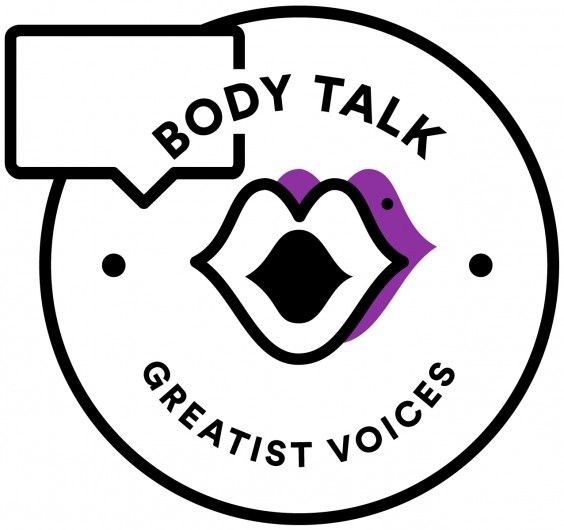I have a history of binge eating disorder and have become an advocate for issues around disordered eating and body image, so I talk about this stuff a lot with my friends and colleagues. And every single time I talk to a friend, fellow body activist, or eating disorder advocate about our own stories of weight and food issues, the conversation always gets around to the topic of our moms. “Well, when I was 14, my mom told me I was getting big thighs…” or “My mom never let us have seconds because she said she didn’t want us to get fat…” or “My mom was constantly on a diet. I learned that that was the normal way to live.”
While our parents are not to blame for directly causing body image difficulties and eating disorders—there are a ton of factors, from societal norms and genetics to traumatic experiences and neurochemistry—research does show that what parents do and say can increase or decrease the risk that someone will end up eating disordered.
In one recent example,psychology researcher Jerica Berge, Ph.D., from the University of Minnesota, followed thousands of parents and their teenage kids and found that teens whose parents talked to them about food with a focus on their weight or size (e.g., “Don’t eat that—you’ll get fat!” or “Yikes, that’s super fattening”) were more likely to fall into body hate, extreme dieting, and eating disorders. People whose parents didn’t talk about size or weight, but just focused on healthfulness of foods, were less likely to have any body-image or eating problems.
Other studies have found that genes and epigenetics also play a role in setting a person up to develop anorexia, bulimia, binge eating disorder, or even the newly emerging diagnosis known as purging disorder, in which someone vomits, uses laxatives, or over-exercises to control weight, but doesn’t do the “binge” part like those with bulimia.
Hillary, a woman I interviewed for my book, Food: The Good Girl’s Drug, told me that her mom had always made little comments and observations about her weight that got stronger and more hurtful as Hillary got older and heavier. “She could never feel happy when she was fat, so I think she can’t understand how anyone else would,” Hillary said. “I wish she could’ve told me that she’d love me no matter what weight I was and just wanted me to be happy and healthy.”
Recently, an email I got from a young reader broke my heart. The subject line: “Hi, I’m 16 years old and my mom is obsessed with my weight.” Ouch. As a mom of two little girls myself, and someone who’s dealt with body image issues and an eating disorder, reading that teenager’s words made me want to cry—and then call her mom and be like, “Noooooooo! Hey, can we talk? I’ve got some great materials to share with you!” Of course, I didn’t. We all have to find our own ways.
Speaking of which, let me end on a bit of a hopeful note for the type of understanding that can grow between us and our moms, or us and our own kids (hopefully!). My mom had a part in my body and eating disorder journey too. But the fact is, most of our parents do the best they can with the information and experience they have at their disposal. My mom was taught that a woman’s value was all in her looks, so above all else, you had to be pretty to be loved and happy. She also believed that you had to be thin to be pretty. So, of course she wanted me to be thin! If I wasn’t, I wouldn’t be happy—and what worse fate can a parent imagine for his or her child? (Not true, BTW.)
Anyhow, as I’ve recovered from binge eating disorder, and my body image and health have stabilized, my mother has learned with me. She now tries her absolute best not to focus on looks with my girls or her other grandkids, and (hardly ever) comments on people’s bodies or shapes in front of the kids. She also accepts me as I am, inside and out, and has become at least a little more accepting of herself. So, even if food and weight issues have poisoned parts of your own relationship with your parents, there’s hope. It takes open discussion, putting ourselves in each other’s shoes, and forgiveness.
And if you’re a parent who’s worried about passing your own food and body crap to your own kids, I feel you. As a mom of two little girls who, unfortunately, may have inherited my tweaked genes for body image and eating disorder risk, I’m passionate about reducing risk for the next generation, and building weight-neutral (read: health matters more than size), body-positive families. So during Eating Disorders Awareness Week this week (February 21-27) , feel free to tweet or email me to talk more, ask Qs, or just vent and share your own story. I’m around!
Sunny Sea Gold is Greatist’s body image columnist and the author of Food: The Good Girl’s Drug—How to Stop Using Food to Control Your Feelings (Berkley Books, 2011). A health journalist by trade and a mom of two little girls, she’s also an advocate and educator focused on reducing the rates of childhood obesity and eating disorders by building Body-Positive Families. Reach out to her at @SunnySeaGold.


